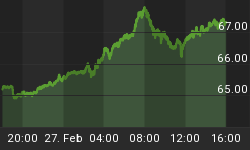Sweeping crackdowns across diverse sectors of the Chinese economy have been sending shockwaves across global financial markets, with American investors finding themselves in the firing line of some of the hottest sectors.
But regulatory moves aimed at the pivotal technology, property and education sectors have triggered heavy selling in Chinese markets and cast a dark cloud of uncertainty about stocks from the Middle Kingdom.
Shares of some of the most recognizable Chinese names such as Tencent (OTCPK:TCEHY) and Meituan (OTCPK:MPNGY), as well lesser-known names such as TAL Education (NYSE:TAL), New Oriental (NYSE:EDU), and Gaotu Techedu (NYSE:GOTU), have tanked in double figures in a matter of days due to the said crackdowns. In fact, the Nasdaq Golden Dragon China Index (NASDAQ:PGJ) - which tracks 98 of China's largest firms listed in the U.S.-- plunged 8.5% on Friday and another 7% on Monday, marking the biggest two-day selloff since the 2008 global crash. The major indices have not been spared, with the Hang Seng down 5.4% and Shanghai Composite Index falling 2.5% on Monday trading.
But it appears that this selloff has now gone beyond Beijing’s comfort zone: Chinese state-owned publications have been urging calm after investors went on a selling spree on fears of even tighter government regulations.
A Passive-Aggressive Beijing
To be fair, you cannot blame the international community for acting so nervous and not being sure what to expect from China.
After all, Beijing has been sending mixed signals that on one hand say that it finally wants to open up to foreign markets but at the same time hitting out viciously at market players who seem to be moving too fast in that direction.
Not too long ago, overseas investment in the Chinese market was a complex and tightly controlled affair. But, slowly but surely, China’s capital markets have been moving into the global investment mainstream.
In 2018, Chinese A-shares (yuan-denominated stocks that trade on the mainland) joined the MSCI Emerging Markets Index for the first time. Beijing also launched Connect Programs that allow foreign investors to purchase certain bonds and shares through Hong Kong’s stock market.
Back in 2019, the Bloomberg Global Aggregate Index, for the first time ever, announced the addition of Chinese bonds to the index with the J.P. Morgan Government Bond Index-Emerging Markets following suite in February 2020
Chinese bonds could start trading on the FTSE Russell’s World Government Bond Index (WGBI) starting October 2021.
More recently, in June 2021, Beijing launched crude oil options on the Shanghai Exchange that are open to foreign investors.
But then again, Beijing cannot seem to make up its mind where it wants to be.
First off, Beijing started cracking down on the space, curbing bitcoin mining due to concerns of excess speculation and warning financial institutions against offering crypto services.
Regulators then cracked down on Chinese ride-hailing giant Didi Global Inc. (NYSE:DIDI) for alleged data security violations. Chinese consumers have grown increasingly privacy conscious in recent years, and Beijing appears to be taking steps to safeguard platforms like Didi’s that handle sensitive information such as locations.
Yet, Chinese authorities’ speedy action on Didi just days after its IPO served to remind international investors who’s boss but also that Beijing is capable of throwing regulatory curveballs that can sometimes come hurtling their way. DIDI shares have crashed more than 50% since its June IPO.
But it appears that Beijing has realized that running roughshod over homegrown global icons is not exactly the best way to instill confidence in its budding international securities market.
A front-page commentary of the state-owned Securities Times has claimed that ‘‘systemic risks do not exist in the A-share market overall, the macroeconomy is still in a steady rebound stage, and short-term fluctuations do not change the long-term positive outlook for A-shares, ‘’ and that ‘‘The recent market decline to some extent reflects a misinterpretation of policies and venting of emotion. Economic fundamentals have not changed and the market will stabilise at any moment.”
The state-run Shanghai Securities News goes even further, reassuring investors that the sell-off would not continue, and that the market will gradually stabilize.
“For institutions, the decline brings the opportunity for positioning in high-quality shares,” it said.
The mea culpa appears to be working:
The iShares China Large-Cap ETF (NYSEARCA:FXI) was up 5.5% on mid-day trading on Wednesday while the iShares MSCI China ETF (NASDAQ:MCHI) and the Invesco Golden Dragon China Portfolio ETF (NASDAQ:PGJ) were up 5.8% and 9.5%, respectively.
By Michael Kern for Safehaven.com
















